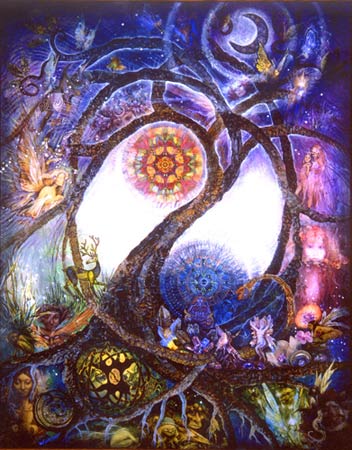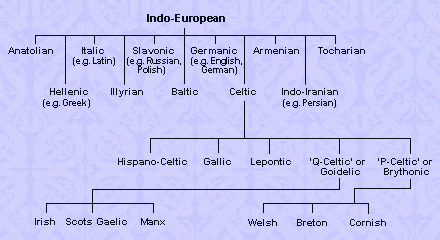| Celts 
The term Celts (pronounced "kelts" or "selts") refers to any of a number of ancient peoples in Europe using the Celtic languages, which form a branch of Indo-European languages, as well as others whose language is unknown but where associated cultural traits such as Celtic art are found in archaeological evidence. Historical theories were developed that these factors were indicative of a common origin, but later theories of culture spreading to differing indigenous peoples have recently been supported by genetic studies. 
Though the spread of the Roman empire led to continental Celts adopting Roman culture, the development of Celtic Christianity in Ireland and Britain brought an early medieval renaissance of Celtic art between 400 and 1200. Antiquarian interest from the 17th century led to the term Celt being developed, and rising nationalism brought Celtic revivals from the 19th century in areas where the use of Celtic languages had continued. Today, "Celtic" is often used to describe the languages and respective cultures of Ireland, Scotland, Wales, Cornwall, the Isle of Man and the French region of Brittany, as many of the people in these regions have Celtic ancestry (see the Modern Celts article), but correctly corresponds to the Celtic language family - in which are still spoken: Scottish, Irish and Manx (Gaelic languages) and Welsh, Breton and Cornish (Brythonic languages). Development of the Term "Celt" The first literary reference to the Celtic people, as keltoi or hidden people, is by the Greek historian Hecataeus in 517 BC. According to Greek mythology, Celtus was the son of Heracles and Celtine, the daughter of Bretannus. Celtus became the primogenitor of Celts (Ref.: Parth. 30.1-2). In Latin Celta, in turn from Herodotus' word for the Gauls, Keltoi. The Romans used Celtae to refer to continental Gauls, but apparently not to insular Celts, which were divided into Goidhels and Britons, and possibly other peoples. This is likely due to the possibility that, at those times, the term "Celta/Keltos" was tied to those cultures or people descendant from the Central Europe Celts, while no ties were known to the insular people (especially the Gaels whose language was extremely different from that of Brythonic Celts). The English word is modern, attested from 1707.[3] In the late 17th century the work of scholars such as Edward Lhuyd brought academic attention, then in the 18th century the interest in "primitivism" which led to the idea of the "noble savage" brought a wave of enthusiasm for all things Celtic and Druidic. The "Irish revival" came after the Catholic Emancipation Act of 1829 as a conscious attempt to demonstrate an Irish national identity, and with its counterpart in other countries subsequently became the "Celtic revival". Nowadays "Celt" is usually pronounced "Celtic" when referring to the ethnic group and its languages, remains in use mainly for certain sports teams (eg. the NBA team, Boston Celtics, and the SPL side, Celtic F.C., in Glasgow). (The pronunciation with /s/ reflects historical palatalization of the letter 'C' when it occurs before 'I' or 'E' in words of Latin origin; in the Classical era Latin 'C' was always pronounced as /k/. The modern pronunciation with /k/ is a reversion to the original, whereas the pronunciation with /s/ has not been reverted.) The word spelt as "Celtic" is (arguably) English, as the Latin was "Celticus" or "Celticum", the Welsh is "Celtaidd", and the Irish Gaelic is "Ceilteach". By this argument, a pronunciation with /s/ should therefore be acceptable. The term "Celt" or "Celtic" can be used in several senses: it can denote a group of peoples who speak or descend from speakers of Celtic languages; or the people of prehistoric and early historic Europe who share common cultural traits which are thought to have originated in the Hallstatt and La TEne cultures. In contemporary terms, there are typically six nations defined as 'Celtic Nations'. To be defined as a Celtic nation, that nation must have ownership of a Celtic language. Info found on Crystalinks.com For Next Page 
|
 Free Forum Hosting
Free Forum Hosting